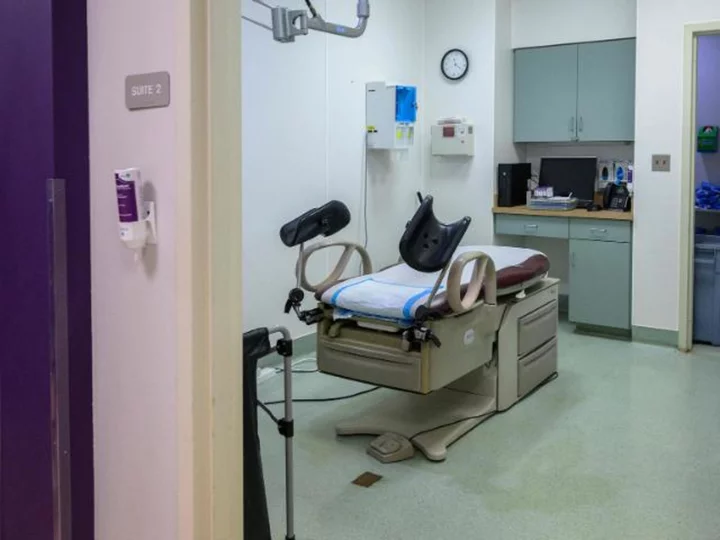
Am I just tired or is it ME?
ME, or myalgic encephalomyelitis, is a serious, long-term chronic illness that impacts the sufferer, leaving them often suffering from extreme exhaustion. ME has for a long time been under-researched, but as awareness of the condition grows, more people are coming forward for help. As a grouping of symptoms, instead of a clearly identifiable illness, ME is very hard to diagnose and thus people can suffer for years before getting help for it. Symptoms can include exhaustion, digestive issues, muscle weakness, shortness of breath and irregular heart rate. But how do you know if you are suffering with ME, or are just really exhausted? Overlapping symptoms Covid has made ME more prevalent, but people still find it so difficult to know what may just be tiredness. “It is really difficult to tell the difference. ME and CFS (chronic fatigue syndrome) have a lot of overlap [with tiredness] and there have been a lot of issues with long covid with these long persisting post-viral malaise, where even if people sleep well, they may still feel exhausted,” says GP and men’s health specialist Dr Anand Patel. If you have had covid or another viral illness, this may increase the likelihood of having ME. Get checked out “If you have had persisting symptoms for more than a few weeks or they are really severe, speak to your GP,” says Patel. Particularly if “you are sleeping okay, your diet, caffeine and alcohol intake are okay, but your symptoms are persisting. They may check your thyroid and blood count”, he explains. “A quarter of our appointments these days are classed as ‘tired all the time’. It is very difficult to weed out what is what when ME and CFS are groups of symptoms that are bundled together. It is not necessarily something that will cause medical harm, but will cause really significant symptoms to sufferers,” says Patel. “With ME, you may be so tired you can barely stay awake in the day. We are still in the exploratory stage of what does cause it, but if you have had psychological trauma or illness it is more likely to be ME that has caused these prolonged symptoms. It can be hard to find things during tests and scans, but of course, there are conditions we don’t have tests for or are hard to identify,” he explains. Be clear of your symptoms “It is really difficult to diagnose something if you can’t find it, so a patient needs to explain symptoms and how they are feeling. Many people with it don’t feel seen, and a doctor may be struggling to find a specific answer,” Patel explains. Keeping a diary of symptoms may help to make it clear. Vitamin deficiencies Consider what the other causes may be. “Tiredness could be caused by blood count and anaemia, thyroid function and deficiencies, dietary changes and vitamin deficiencies,” says Patel. “If you have a varied diet, these are unlikely. B12 and folic acid deficiency are common, they make blood make new cells and are important in nerve function. Also, it could be vitamin D deficiency, a lot of people need to take a vitamin D tablet every day in the UK because we don’t get enough sun and slap on factor 50 as soon as it does come out,” Patel says. Read More Charity boss speaks out over ‘traumatic’ encounter with royal aide Ukraine war’s heaviest fight rages in east - follow live Dr Alex George: Five months of sobriety has made a ‘huge difference’ Everything you need to know about Sophie, the new Duchess of Edinburgh Beyonce kicks of Renaissance tour in string of glamorous outfits
2023-05-12 15:29

4 signs you’ve eaten too much salt
Feeling the urge to glug a glass of water shortly after you’ve munched a packet of crisps, bowl of popcorn or handful of peanuts, is a clear sign your snack was on salty side – and that’s not necessarily a bad thing. “Salt is a necessary requirement to eat – and not for flavour,” says Pippa Hill, nutritionist and founder of The Weight Loss Guru. Table salt, aka sodium chloride, contains around 40% sodium, an essential nutrient. “Eaten in a small quantity, sodium helps the conduction of nerve impulses, muscle contraction and relaxation, and helps maintain the balance of water and minerals,” she continues. “A lack of salt can lead to muscle cramps, nausea, fatigue and light-headedness.” However, consuming more than the 6g a day recommended by the NHS for adults – equating to around one teaspoon – can be detrimental for your health. “A high salt intake disrupts the natural sodium balance in the body,” says Olivia Burley, registered associate nutritionist who is currently working on the NHS Diabetes Prevention Programme. This can result in high blood pressure, she explains: “Hypertension is a condition where blood pressure remains elevated over time, which can increase the risk of heart and circulatory diseases.” Unless you keep a very close eye on food labels, it’s not always obvious how much salt you’re eating in a day. “Examples of foods high in salt can be canned fish or poultry, frozen foods such as breaded meats, salted nuts, canned beans, cured meats, soup and sandwiches,” says Hill. And just because you’ve drunk enough water to quench your thirst doesn’t mean you’re negating the effects of too much salt, which is why it’s important to be aware of other health indicators. “If you are experiencing any or all these symptoms, it is always best to seek medical advice,” Burley advises. 1. Headaches The dehydration caused by excess salt intake can lead to severe headaches. “These headaches tend to be more painful than a mild one, giving a throbbing sensation as the blood vessels are being expanded,” Hill says. “They tend to come on between an hour or two after you’ve eaten, as sodium levels rise through the body.” They may come on quicker if you have high blood pressure or suffer from chronic headaches in general, but can often be solved by rehydrating. “As your water levels are imbalanced, by drinking more water you’re able to minimise and get rid of the headache.” 2. Swollen feet and hands Also known as edema, swelling of the fingers, ankles or feet can be a delayed reaction to a spike of sodium. “When too much salt is consumed, the body retains the extra sodium and increases the fluid outside of the cells, Burley explains. “This causes the kidneys to have reduced function, remove less water and therefore increase blood pressure.” Swelling may occur more when sitting down for too long or on long journeys. “This isn’t an instant response after eating, but if in the next 24 hours of having eaten salty foods you notice swelling in these areas, it could be a link,” Hill says. “It’s best to seek medical advice if this is an ongoing occurrence, as it could be a sign of a more serious health concern.” 3. High blood pressure “Salt is the largest cause of high blood pressure,” Hill warns. “Within just 30 minutes, eating excess salt will have a bodily reaction to the blood vessels.” Also called hypertension, if left untreated it can increase your risk of serious problems such as heart attacks and strokes. Hills says: “If after eating a salty diet, your symptoms include blurred vision, chest pain such as a tight feeling, palpitations, shortness of breath or sudden nosebleeds, it could mean you have a raised blood pressure.” Burley adds: “Hypertension can often have no symptoms and the only way to know your blood pressure is to get it monitored using a machine.” 4. Frequent urination “Excessive thirst is a common response to eating salty foods and naturally leads to an increase in fluid consumption, causing excessive urination,” Burley says. By sending the signal that you need to guzzle lots of liquid, the body aims to remove the excess salt build-up. “Although drinking more fluids in response to an increase in salt is one of the main reasons for urine production, it could be a symptom of other conditions like polyuria, therefore medical checks are best.” Read More Charity boss speaks out over ‘traumatic’ encounter with royal aide Ukraine war’s heaviest fight rages in east - follow live Am I just tired or is it ME? Dr Alex George: Five months of sobriety has made a ‘huge difference’ Everything you need to know about Sophie, the new Duchess of Edinburgh
2023-05-12 15:25

Earnings Surge for Main Thai Airlines as Tourists Flock Back
Thai Airways International Pcl and Bangkok Airways Pcl reported a surge in first-quarter earnings as tourists flocked back
2023-05-12 11:58

74 million tourists visited Orlando, Florida, almost reaching pre-pandemic levels
Tourism official say more than 74 million visitors came to the Orlando, Florida area last year, a benchmark just short of pre-pandemic levels
2023-05-12 06:53

BTS book 'Beyond the Story,' source of Internet speculation, to be published July 9
The speculation over a certain untitled book can end, and it's BTS fans, not followers of Taylor Swift, who can rejoice
2023-05-12 06:24

123-year-old schooner will be leaving Maine after auction sale
A 123-year-old schooner that was once declared the “Official Windjammer of Maine” by state lawmakers has a new owner, and it will be leaving Maine
2023-05-12 04:26

Peloton is recalling more than 2 million exercise bikes in the U.S. Here's why
Peloton is recalling more than 2 million of its exercise bikes in the U.S. because the bike’s seat post assembly can break during use, posing fall and injury hazards
2023-05-12 00:54

Peloton recalls two million bikes after adjustable seats cause injury hazard
Peloton has recalled more than two million bikes due to safety concerns caused by the adjustable seat breaking during use. The US Consumer Product Safety Commission issued a recall for about 2.2 million bikes after receiving 35 reports of the bike’s adjustable seat post “breaking and detaching” during rides, including 13 reports of injuries such as fractured wrists, lacerations, and bruises from falling. The recall affects bike model PL01, which was sold from January 2018 to May 2023 for about $1,400 and manufactured in Taiwan. “Consumers should immediately stop using the recalled exercise bikes and contact Peloton for a free repair,” the CPSC said in a statement, adding that Peloton is offering customers a free seat post that can be self-installed. Peloton said bike models can be identified by the label on the inside front fork of the bike, near the flywheel. This is not the first time Peloton has faced a widespread recall. In May 2021, the exercise company was forced to recall 125,000 of its treadmills following the death of a six-year-old child and dozens of other injuries. The CPSC said Peloton began receiving reports of incidents and injuries with the treadmills as early as December 2018, but failed to promptly report the treadmill hazards. The New York-based company agreed to pay a $19 million fine. The Independent has contacted Peloton for comment. Read More Parents sue Peloton after three-year-old child is left with third-degree burns from treadmill Peloton issues warning to keep kids and pets away from treadmill after child killed Peloton recall faulty pedals from 27,000 bikes following injuries
2023-05-12 00:27

Coach Owner Says Sales Will Benefit If Chinese Shoppers Travel Again
The owner of the Coach and Kate Spade brands is poised for a potential boost to sales if
2023-05-11 23:54

Peloton is recalling more than 2 million exercise bikes. Here's why
Peloton is recalling more than 2 million of its exercise bikes because the bike’s seat post assembly can break during use, posing fall and injury hazards
2023-05-11 23:53

Abortion clinics saw an increase in violence and threats in 2022, report says
A new report says there was a "sharp increase" in violence at abortion clinics in 2022, the year when Roe v. Wade was overturned, ending the federal right to an abortion. A disproportionate increase occurred in states that protect abortion rights, according to the National Abortion Federation, a professional association for abortion providers.
2023-05-11 21:22

Dr Alex George: Five months of sobriety has made a ‘huge difference’
Dr Alex George has revealed that more than 150 days without alcohol has been “a challenge” but has made a “huge difference” to his life. The former Love Island star, TV doctor and now the UK government’s youth mental health ambassador shared that drinking at weekends would sometimes affect him for up to four days afterwards. The 32-year-old quit his A&E doctor job 18 months ago to focus on bringing the public accessible health advice, often on TV – including Channel 4’s Naked Education – and five months ago, he cut out booze too. “It’s made a really huge difference,” George says. “I get to bed at 9pm every night, I wake up at 6am, I listen to music, I play music, I go to the gym, I spend quality time with a small number of people – I’ve developed really, really strong boundaries about how I spend my time and who I spend it with.” It’s an “investment” in himself, he says, but it isn’t always easy. “When you’ve got a bank holiday weekend and a lot people are sat in a beer garden – that is a challenge. Because even if you’re not addicted to alcohol, and you’re just a part of the British culture, you’ll feel challenges of not drinking in those times. “But it’s looking at what will future Alex be grateful for – you know, that delayed gratification.” It’s a topic he explores in his latest book, The Mind Manual, on the mental fitness foundations to give us all a boost – just in time for Mental Health Awareness Week (May 15-21) – including how to hold better boundaries and why mistakes are part of life. “I didn’t like how alcohol made me feel,” George, who also hosts the walking and wellness podcast Stompcast, says. “I was drinking pretty standard-ish for a young person in their 30s, but after four, five or six beers on a Saturday night, I’d feel bad – that would affect me a small percentage [of the time] all the way up to Tuesday or Wednesday.” “It affected my desire for the gym, it affected the way I ate, it affected the relationship I had with myself – so I had a really honest conversation with myself.” His book is about asking people to challenge things: “Question why are you doing this behaviour?” During some self-reflection when he was still working in A&E, George says he realised he wasn’t practising what he preached. “I thought, ‘I’m here talking about finding balance and looking after your own mental health, and I’m actually damaging my own mental health by doing too much.” Self-worth is often so tied up with the roles we have in our careers, so it was a difficult decision to leave, he says. “Since the age of 12 or 13, I’d wanted to be a doctor. You sacrifice a lot, university is tough, I worked in King’s College Hospital then Lewisham Hospital [London]. It was my passion, I covered a lot of the pandemic – on social media, it was my identity. “But I think sometimes, it’s really, really important to remember that just because your identity is a part of your life, it doesn’t have to be your identity your whole life. Walking away or changing direction [doesn’t mean] that time of your life is now devalued. “Even though I am not ‘Alex the A&E doctor’ anymore, it is all ingrained in who I am.” He’s had a significant impact as a public health doctor though, securing £79million of funding towards mental health support teams in schools in 2021. He’s thankful for the platform Love Island fame afforded. “Of course, if it wasn’t for that show, I wouldn’t have got that [money] for the kids.” He also started the #postyourpill campaign on social media – trying to banish the stigma around taking medication for mental health issues, like the anti-depressants he was prescribed last year. He’s also tirelessly campaigned for suicide prevention awareness and better early intervention for people with mental health issues, after his 19-year-old brother Llyr died by suicide in 2020. Heartbreakingly, George had been due to go home to Carmarthen, Wales, to see his family for the first time since the pandemic. “The week before my brother passed away, my best friend’s dad was terminally unwell and I stayed in London. In that time that I stayed, my brother passed away, so I could have seen him. “You question whether that’s a mistake or not. It’s very complex, because you don’t see the bigger picture always. [If] you know that a decision would have a certain outcome and it was a negative outcome, you wouldn’t make that decision a lot of the time. “I think that’s probably one of the biggest ones that I’ll have to live with.” Now though, George says he’s received “thousands – if not tens of thousands – of messages” and comments in person from strangers struggling in a similar way to Llyr, but saying they’ve now got help. “How many lives have been saved off the back of Llyr’s death? There’s an element of, ‘What can we control?’ I can’t turn back time, all I can do is try and support other people with their mental health.” The book discusses the ‘mental health toolkit’ George developed while he was grieving and growing – “Not just as a tribute to Llyr but as a tribute to the mental anguish I have faced in life, both before and since his death”. It includes written exercises to help readers audit their feelings as well as ‘universal truths’ to cling to in dark times, like “sleep is a saviour” and “connection is your superpower”. He adds: “Grief is with us for life. It’s never OK that person has died.” But we can find ways to “organise” that grief in our minds. Plus, difficult times are key for personal growth. “Sometimes, you have to walk through hell,” he says, “It sounds really dark, but in some ways, through difficult experiences, you learn a lot by yourself. You will know your resilience and your ability to cope with things. You also learn what helps you cope.” For George, that means walking (“a lifeline for me”), a few close friends and hiit classes at the gym. “In the last few years, there have been some significant highs and lows, but I do think what I’m grateful for is that in adversity, you learn a huge amount. I endured.” The Mind Manual by Dr Alex George is published by Aster, £20. Available now in paperback, and also as an ebook and audiobook. The Samaritans helpline is available 24/7 on 116 123. Read More Charity boss speaks out over ‘traumatic’ encounter with royal aide Ukraine war’s heaviest fight rages in east - follow live Everything you need to know about Sophie, the new Duchess of Edinburgh Beyonce kicks of Renaissance tour in string of glamorous outfits Pensioner, 85, shares the simple switch that’s helped him to do 650,000 press-ups
2023-05-11 20:46
